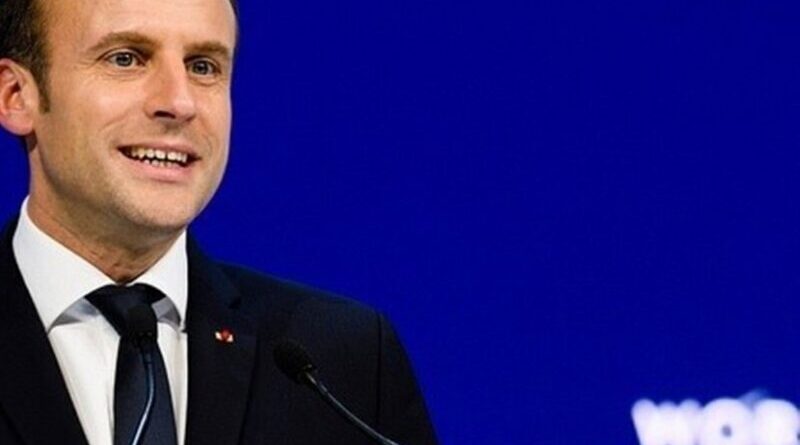‘Dégagisme’ Defeated? – OpEd
With Europe’s future direction uncertain, and new German Chancellor Olaf Scholz appearing reluctant to take up Angela Merkel’s place at the center of European affairs, the stage is set for Emmanuel Macron to continue his quest to set France astride the Continent. If, that is, he can convince enough French voters this spring that they are better off now than they were when he first took office five years ago. Failing that, he need only convince them that he is more capable than his potential replacements on offer. Both strategies look promising, and if things work out as expected Macron will become the first French leader reelected to a second term in two decades.
To begin with, the math for Macron isn’t daunting. Just twenty-four percent was enough to see him through to the second round in 2017, where he easily defeated the far-right candidate Marine Le Pen. Current polls show him sitting at about that level now, with his closest rivals, the National Front’s Marine Le Pen, and center-right candidate Valérie Pécresse, both coming in at around seventeen percent. Rounding out the field of serious contenders are the candidate of the far-left, Jean-LucMélenchon, with around ten percent support, as well as political newcomer Eric Zemmour, a right-wing essayist and journalist currently polling a strong and surprising fourteen percent, just behind Le Pen and Pécresse.
Already commanding a considerable lead, however, in any second round matchup Macron will be able to point to a French economy that under his management has surged to its best performance in over fifty years. Recapturing some of those golden age economic numbers will likely blunt some of the residual anger of the still disgruntled “Yellow Vests,” and his now gradually accepted fair handling of the outbreak of the COVID-19 pandemic and global recession will also likely offset frustration by those such as teachers, who were inundated with complex and variable testing and quarantining guidelines. Though polling shows his approval rating regularly bobbing between the high teens and low twenties over the past several months, in the two-tiered multiparty French electoral system, that is likely to prove plenty.
Ultimately, the final outcome of this year’s French Presidential election may be determined by which of the candidates doesn’t run. Despite his declared intention, it isn’t clear that Zemmour will ultimately follow through as his campaign continues to lose steam. His dropping out would likely provide fellow rightist Marine Le Pen and her National Front enough additional support in the first round to force a rematch of the 2017 French Presidential Election. Le Pen lost soundly then and would likely do so again, with Macron commanding the center. The bigger threat to Macron’s prospects is if Zemmour remains, for then the most likely second round matchup becomes center-right candidate Valérie Pécresse. In that case, the center would be contested. And though the new live-tracker Economist election forecaster at this point gives Macron a 79% of victory against her, a lot can happen in six months – just ask Boris Johnson. And unlike Mr. Johnson, who has up to this point been largely shielded from the consequences of his current scandals by the inherent two-party nature of British political institutions, Macron has no such insulation. Any stumble could thus prove precipitous.
Macron has a vision of Europe markedly different from that which grew out of the end of the Cold War. More reminiscent of French politicians in the 1970s, following in the tradition of de Gaulle, and in the wake of West German Chancellor Willy Brandt’s Ostpolitik, Macron views Europe as strategically distinct from the broader Euro-Atlantic coalition, generally lumped together as “the West.” “Strategic Autonomy” has been a repeated theme of Macron’s time in office, as has the case for a stronger Europe more generally. With both Merkel and the U.K. now departed, and the rotating seat of the E.U.’s Presidency falling to him, Macron has a chance to pursue this vision further. An imminently winnable domestic political contest is all that stands in his way.
*A graduate of Spring Arbor University and the University of Illinois, Joseph Solis-Mullen is a political scientist and graduate student in the economics department at the University of Missouri. An independent researcher and journalist, his work can be found at the Mises Institute, Eurasian Review, Libertarian Institute, Journal of the American Revolution, and the Journal of Libertarian Studies. You can also find interviews at the Bro History, Freedom Adventures, and Scott Horton podcasts. You can contact him through his website http://www.jsmwritings.com or find him on Twitter.

